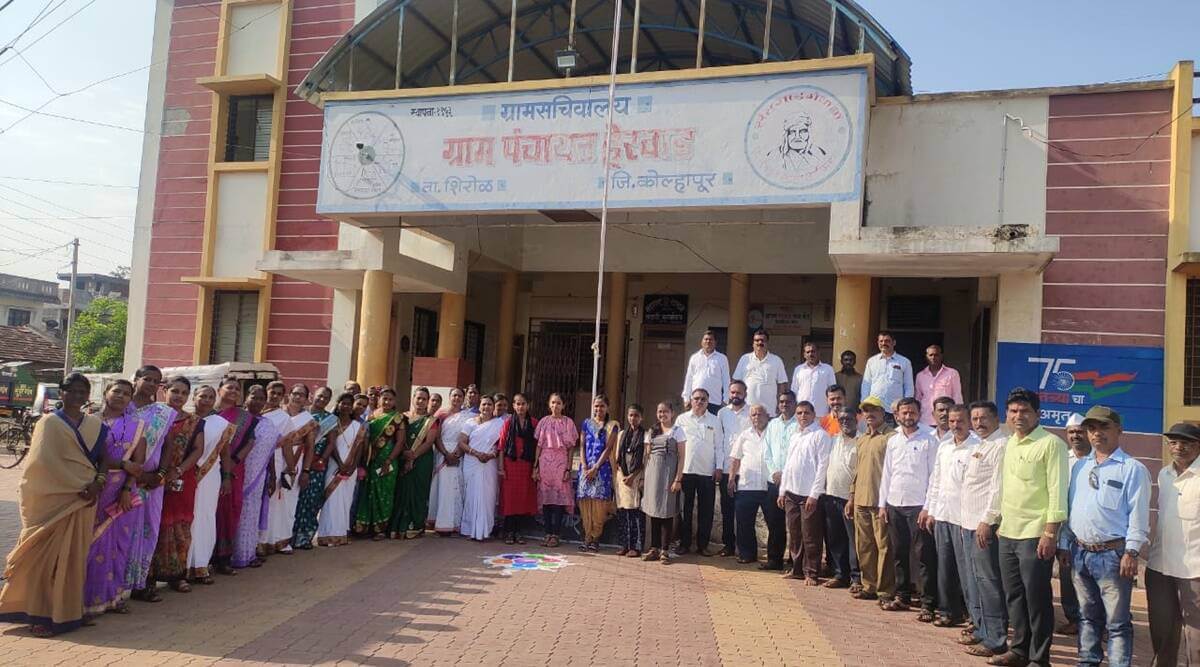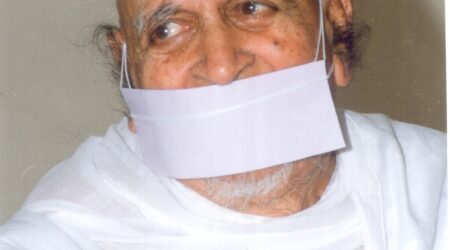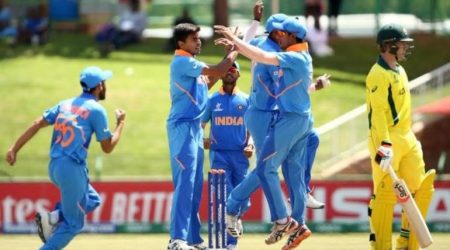By Neera Kuckreja Sohoni
Mother’s Day on May 8 attained a special significance in India this year not because of the customary Hallmark cards and commercialized celebration of mothers and mother figures, but because of the courageous step, one small village took four days preceding Mother’s Day.
Located in Maharashtra’s Kolhapur district, the village took the historic decision on May 4 to ban all discriminatory socio-cultural practices aimed at punishing and isolating widows, and free widowed women of humiliating and dehumanizing practices and mandates.
Breaking social norms, members of the Herwad Gram Panchayat (Village Council) voted to end the evil practices traditionally associated with and imposed on widowhood including forgoing the use of kumkum or bindi, which in earlier eras only married women with husbands alive could use, but which in contemporary times is used by unmarried women as well, not necessarily to signify married status but as a cosmetic.
Explaining what inspired the progressive move, the Panchayat head noted that “The purpose to bring this resolution was to empower widows of our villages, who were traumatized because of these practices. During the pandemic time, 12-13 men between the age group of 30-50 lost their lives in our village. The wives of these men had to endure all these evil practices. It was painful to see those women who were already suffering from the loss of their husbands undergo further suffering. So together we decided to end all these terrible practices”.
“We have set an example before the country, to come forward and erase these ill practices. We want to appeal to the government also to make a law against it,” the village chief added with pride. The chief also expressed his gratification that the decision to ban widow rituals and restrictions was taken in the death centenary year of Shahu Maharaj, Maharashtra’s revered and iconic leader.
Across India, immediately upon the husband’s death, the red-powered bindi or kumkum in some parts and sindoor (vermilion) in other parts of the country are wiped off the widow’s forehead and from her hair parting, her long tresses are chopped, her bangles smashed, her mangal sutra – necklace signifying married status with husband alive, broken and snatched away.
Other punitive steps traditionally have included widows being forced to wear only prescribed colors – white in most of India, maroon in Maharashtra, forego various kinds of diet, stay in quarters away from the main family, be confined to the home, have none or severely restricted mobility, and in extreme cases, prevented from all outside interface.
Widowhood in conventional societies – especially India – has always been problematic. A widow’s sexuality and her single status risk the stability of households by tantalizing men, or conversely by her being tantalized by men.
Property ownership and inheritance by widows was and is always perceived as a constant threat to a family’s assets who have lost their son, have no desire to lose his assets as well to a woman who has no blood relationship with them, and therefore could be open to manipulation by outsiders.
The norms and constraints imposed on widows accordingly aim at restricting the sexuality, attractiveness, and desirability of a widow, and at suppressing her eligibility to remarry.
Undoing those centuries-long taboos the Gram Panchayat passed a unanimous resolution abolishing all the malpractices which traditionally have been followed upon the death of the husband. “In our society,” the resolution noted, “after the death of husband during last rites there is a practice of wiping off sindoor, breaking of bangles, removing of Bichiya (Toe-ring), etc. Widows are also not allowed to attend any type of social and religious events in the village”.
Acknowledging that every citizen has an equal right to live with freedom, the resolution noted how those evil customs have taken away the rights of women, in contravention of the law and the constitution. Noting that “every widow of this village and the country has the right to live respectfully”, the resolution declared that “all the practices related to widows are ended with immediate effect”.
Simultaneously, the resolution asked that an awareness campaign be carried out in the village to inform people of the newly passed resolution.
To Pramod Zinjade, a social activist and founder-president of a voluntary organization that spearheaded this unprecedented change. He advocated with and convinced the gram panchayat to pass the resolution to ban the “insulting” way to drive home to a woman that she was now a widow.
Coincidentally, what inspired him to take up the cause of widows was also linked to the Covid-19 pandemic. After one of his close associates died following a Covid-19 infection, he witnessed firsthand the cruelty of the smashing of bangles and mangal sutra and the erasure of kumkum from the heartbroken widow’s person.
Moved to action at this cruel amplification of the widow’s sorrow, he determined to help end the malpractice. He used social media to circulate his views inviting others to join him, and approached village leaders and panchayats as well as women, some of them widows, to work to end the unjust practices.
To set an example, he signed and registered a pledge saying after his death, his widow would not be asked to undergo any such ritual. Soon, others followed and signed a similar pledge, which in turn inspired Herwad gram panchayat to inform him of their decision to pass a resolution, making Herwad the first and a model village to tackle these gross unjust injunctions on widowed women.
The pro-widow reform movement is beginning to gain momentum with its advocates and supporters contacting other gram panchayats to pass similar resolutions, and convening workshops to inform and sensitize people to these unjust and unconstitutional practices.
In addition, they are lobbying elected representatives to enact a suitable law and inviting widows to serve as role models by not following the unfair dictates restricting their conduct, grooming, and social presence.
It is heartening that some exceptionally courageous widows have reached out to him to share their anguished experiences and their readiness to become social change warriors. Some have jointly petitioned the state minister to enact a law to ban these oppressive practices.
To keep women bonded and enslaved historically is common in most societies with inherited disparities still undercutting women’s rights, entitlements, and status compared to men. Sati or self-immolation and other deathly rituals and practices were aimed at suppressing, suffocating, and killing women – married and widowed – and preventing them from being appropriated by others. For long, the woman was not just an adjunct but a property of the male.
But widowhood has been an especially compelling mark of shame, oppression, isolation, alienation, deprivation, destitution, and humiliation in the Indian culture and legal tradition. Ironically, it fell to Covid-19 to arouse the conscience of a dormant rural society.

Neera Kuckreja Sohoni
Disclaimer: The views expressed are not necessarily those of The South Asian Times











